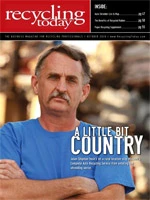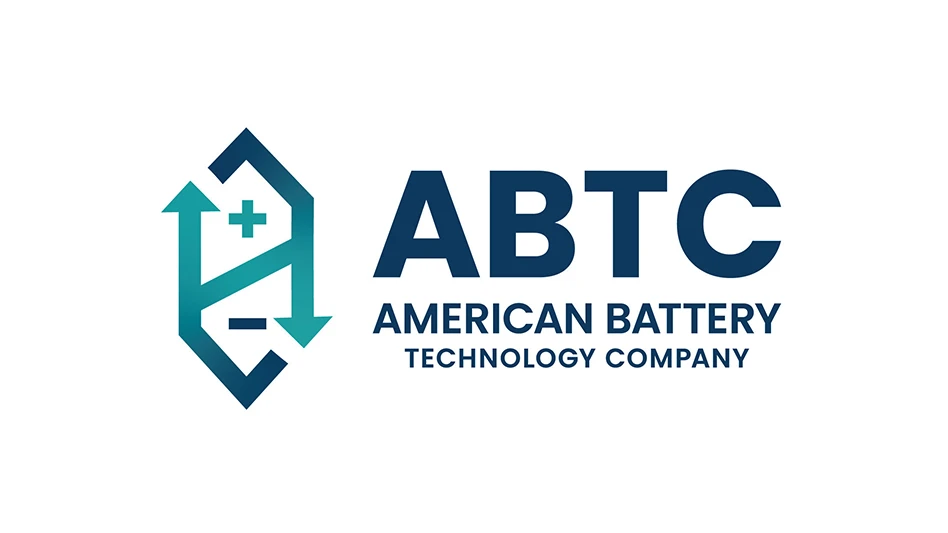
|
CARS/SCRAP’N AT A GLANCE Officers: President Jason Shipman Locations: 40-acre facility in Farmington, Mo.; feeder yard in Cape Girardeau, Mo. No. of Employees: 25 Equipment: 2,300-horsepower auto shredder made by American Pulverizer Co.; shredder downstream separating equipment; material handlers made by Exodus Machinery, Northshore Manufacturing and Terex Fuchs; Komatsu 220 with a Genesis shear; Komatsu wheel loader; Al-jon LC 90 lid flattener, Al-jon CL 580 baler with an Al-jon 1100 model loader; 450-horspower American Pulverizer Co. aluminum shredder; and numerous forklifts, trucks, trailers and small equipment Services Provided: Ferrous and nonferrous scrap purchasing, processing and shipment; mobile car crushing and baling service; roll-off services to commercial accounts; and scrap tire collection |
When he entered the scrap recycling business in the early 1990s, Jason Shipman wasn’t sure if it would be anything more than a hobby. “I didn’t think it would last very long—maybe a few years at best,” he says.
Two decades later, Shipman’s Complete Auto Recycling Service Inc. (CARS) has grown from a traveling car crushing service to a comprehensive metals recycling and shredding operation located on 40 acres of land in Farmington, Mo.
Operating under the names CARS and as Scrap’N (www.scrap-n.com), Jason’s company processes and ships out about 3,300 tons per month of ferrous and nonferrous scrap. He credits his employees, his customers, his equipment suppliers and God (not necessarily in that order) with having helped him build a company to a larger scale even as economic circumstances and outside advice sometimes cautioned him against it.
SPRINGING TO LIFE
Growing up as the son of a small-town funeral home operator, Jason spent part of his life seemingly in line to become the third-generation owner of that business. But Jason says both his father and he determined that better prospects were possible. “That’s not a situation where you can go out and drum up more business—or you’ll get in trouble if you do,” he quips.
“I’ve never been content to work from 8 to 5 or wait for business to come to me, and my father really wasn’t like that either,” says Jason. “He understood that I wanted to find something else.”
In 1990, that “something else” started out with a 1-ton truck and trailer that Jason used to pick up auto bodies to take to salvage or scrap yards. By 1993, Jason had saved up enough to buy a portable car crusher and two years later he had enough to buy 20 acres of land as an equipment storage area.
The next step, also in 1995, was to install a truck scale and begin buying scrap rather than being a supplier to other scrap yards. Jason also incorporated his enterprise under the name Complete Auto Recycling Service.
Since 1995, the company has steadily grown in the number of people it employs, the volume of scrap it handles and the amount of processing machinery it runs and has purchased adjacent land to double its acreage.
The addition of key employees and new pieces of equipment have all been important milestones, says Jason. “I have some excellent people; some have been here almost from the beginning, and I’m thankful to them,” he comments. “Machinery is comparatively easy; just pick up the phone and order it. Trying to find a good employee is not so easy. I think the quality of applicant is where the issue really is. The younger American workers just aren’t like the old timers that grew up in the country.”
PPerhaps the boldest expansion came in 2008 and 2009 as CARS and Scrap’N paid for and installed a 2,300-horsepower auto shredder made by American Pulverizer Co., St. Louis.
Although Jason refers to his company as “just a minnow in an ocean of whales,” the addition of the shredder has allowed CARS to purchase scrap that may have otherwise gone to the shredding plants of competitors as well as to process and sell material to consumers rather than those same competitors.
DOING THINGS DIFFERENTLY
Running an auto shredder is a CARS strategic advantage that required a significant investment. Jason cites several other strategic advantages that have more to do with procedures and perspective.
“When I first started flattening cars in the early 1990s, I found that when I went into a salvage yard, there was always a pile of tires and a pile of gas tanks,” recalls Jason. “We decided we weren’t going to leave those messes—it’s going to be a complete cleanup. And when we crushed cars, we weren’t leaking fluids onto the ground. That’s probably what got my flattening business going, because people noticed.”
He continues, “I learned as a child to clean up after myself; I found that cleaning up the mess after crushing a customer’s cars helped me maybe as much or more than anything. I don’t know how many messes left by some other crusher I cleaned up but I probably didn’t lose a single customer after doing that.”
MMaking critical observations and following up on them helped Jason first build his car flattening business and then provided crucial insight as he established Scrap’N as a recycling and shredding operation.
“As a car flattener, I had waited in line at a shredder like everyone else,” he comments. “As time progressed, the things I didn’t like—such as staying in line for four hours or hitting potholes or metal obstacles that caused flats—I’ve gone out of my way to avoid those situations for my customers.”
Jason ascribes some of his courtesy to hospitality perhaps being more common in the country than in the city and also refers to a Golden Rule aspect of dealing with others. “I try to treat the customer the way I want to be treated. I didn’t want to sit in line for four hours and I don’t want my customers to,” he states.
Repeat customers cannot be guaranteed in a business where scrap sellers follow scale price differences closely, says Jason. But his experience tells him that courtesy, honesty and transparency in transactions can all help foster customer loyalty.
“If a person does an honest job for an honest price, he can do well,” says Jason. “I’ve always attempted to go way out of my way to show there is no cheating on the scale, no manipulated weigh tickets or cases where ‘the dog ate the receipt’ so there’s no record to check against.” Adds Jason, “We just try to do a good job, provide a good service and pay a fair price.”
AAs a shredder operator, CARS and Scrap’N have worked to enhance customer service by solving problems, Jason adds. “Most shredder operators don’t like propane tanks, gas tanks, chain link fence or cable,” he comments. “Our customers have this stuff and need to do something with it. We have figured out how to shred these items safely, so now my customers can sell their hard-to-sell material to me.”
POSITION OF STRENGTH
Jason says the period after the 2008 lending industry crisis, which lined up from a timing perspective with his company’s multi-million-dollar investment in the auto shredder, was “mentally tough” as he watched his company’s cash reserves dwindle, while economic conditions brought “slim pickin’s” on the revenue side of the business.
While installing the shredder, Jason said he encountered skeptics. “Everyone I asked for advice said I was out of my mind—no rail, no river and 75 miles south of a metro area out in the country,” he recalls. “I was fixing to spend $6 million or $7 million—they said I’d lost my mind. But I thought I could make this work—so my attitude became, ‘Watch this.’ And now, it’s working, it’s making money, everyone here is happy—my banker smiles about it.”
The rural, middle-of-the-country location is not seen by Jason as a weakness, but rather it brings substantial benefits, he says. “There aren’t many industrial accounts in this area to buy from, but we buy from local peddlers and from other dealers, some as far away as 200 miles,” says Jason.
“As far as selling, most of the steel goes through DJJ as a broker to the big Nucor steel mills down in Blytheville, Ark.,” says Jason. “It’s an arrangement that works real well—those are big mills and they can take every bit of what I can sell.” The arrangement has also worked out well for a trucking firm CARS works with, which, as CARS has grown, has been able to increase its fleet from six trucks to 22, according to Jason.
Some ferrous scrap will also go to other steel mills within trucking distance, while the nonferrous scrap, says Jason, “goes all over the place, although I do try to sell mostly domestically. I sell all over the place—some to Chicago, some to Henderson, Ky., some to a larger scrap company in St. Louis.”
His reasons for staying in the domestic market are both practical and philosophical. “I used to sell one or two containers per week to export,” he comments. “After 9/11, the restrictions that came into play, plus insurance needs, started turning into something I did not want to deal with. I really love this country, and I try to sell as much domestically as I can. Sometimes I’ll sell something cheaper so it can stay here.”
FFarmington’s location within trucking distance of both the traditional industrial sections of the Midwest as well as emerging industrial regions in the South has served CARS and Scrap’N well.
Nonetheless, during the lowest point of the economic dip, there were severe tests for the company. “Anybody that didn’t have money saved in 2008 probably didn’t survive,” Jason comments. “I didn’t lay anybody off. I feel real responsible for all my people; they’ve got to keep eating,” he continues. “I had to cut out overtime and maybe send people home early at times, but they understood.”
The tough spell ultimately helped strengthen the company, says Jason. “I think they were grateful to still be here, and I’m definitely grateful that they’ve stuck with me,” he says.
JJason is hopeful that workplace atmosphere overall is a strength for CARS and Scrap’N. “I try to treat them the way I’d like to be treated,” he says. “I don’t yell and scream or cuss at them or treat them like idiots, because I don’t want to be treated that way.”
He continues, “My parents taught me to ‘treat others as you want to be treated.’ If you look on our currency you’ll find ‘In God We Trust,’ and our founding fathers thought that was important enough to put it there—on our money for everyone to see. Do you really think they were embarrassed or ashamed to say that? If I didn’t have some of that same trust I would not be here today.”
Jason says he is grateful for the financial success his company has been able to find, but adds that enjoying his work and feeling a sense of accomplishment are his foremost goals.
“I don’t now and never have worked only for the money,” remarks Jason. “A good challenge and accomplishment means more to me than a big bag of money. I learned years ago that making money needs to be a secondary concern. A feeling of accomplishment and a job well done are far more important to me; the money will come much easier when it’s not the most important objective,” he comments.
“I always have and still do enjoy coming in every day—most days 12 to 14 hours,” says Jason. “Of course, some days are a challenge, but overall this is still fun. When the fun runs out, then I’ll be done,” he concludes.
| HANDS-ON APPROACH |
|
Jason Shipman, owner of Complete Auto Recycling Service Inc. (CARS), Farmington, Mo., started in the industry as truck driver and car flattener operator, and he has never strayed too far from his roots. Although CARS now processes more than 3,000 tons of scrap per month and owns several pieces of equipment ranging up to a 2,300-horsepower shredder, Jason remains a hands-on equipment operator. “I stayed in that shredder seat for a year,” Jason says of the first 12 months after CARS installed its American Pulverizer shredder in early 2009. “I wanted to spend 12 months out there, so when one of my guys hears a weird noise, I’ll know what it is because I’ve been in there,” he adds. “I’ve changed the hammers and changed the grates,” says Jason of the shredder. It’s a familiarity he cultivates with all the machines running at the CARS facility. “There are some occasions when I’m gone from here, and employees know they can call me and I’ll know what I’m talking about. I’ve touched every machine here and spent hours with it.” His focus on operations can lead to cases of mistaken identity when visitors arrive. “A salesman will come in and see a group of four or five of us and ask for the owner and not figure I’m the one,” says Jason. “I’ll usually joke that he’s probably in the office counting his money and smoking a cigar!” |
The author is editor-in-chief of Recycling Today and can be contacted at btaylor@gie.net.

Explore the October 2010 Issue
Check out more from this issue and find your next story to read.
Latest from Recycling Today
- Metso launches electric Anode Weighing and Casting Machine
- Circular by Shapiro releases "5 for Five" sustainability series
- Graphic Packaging set to close Ohio CRB facility
- Ameripen voices support for Maryland EPR bill
- Maryland county expands curbside recycling to include electronics
- California EPS ban will be enforced
- YKK AP America introduces BetterBillet
- Fresh Perspective: Cameron Keefe





